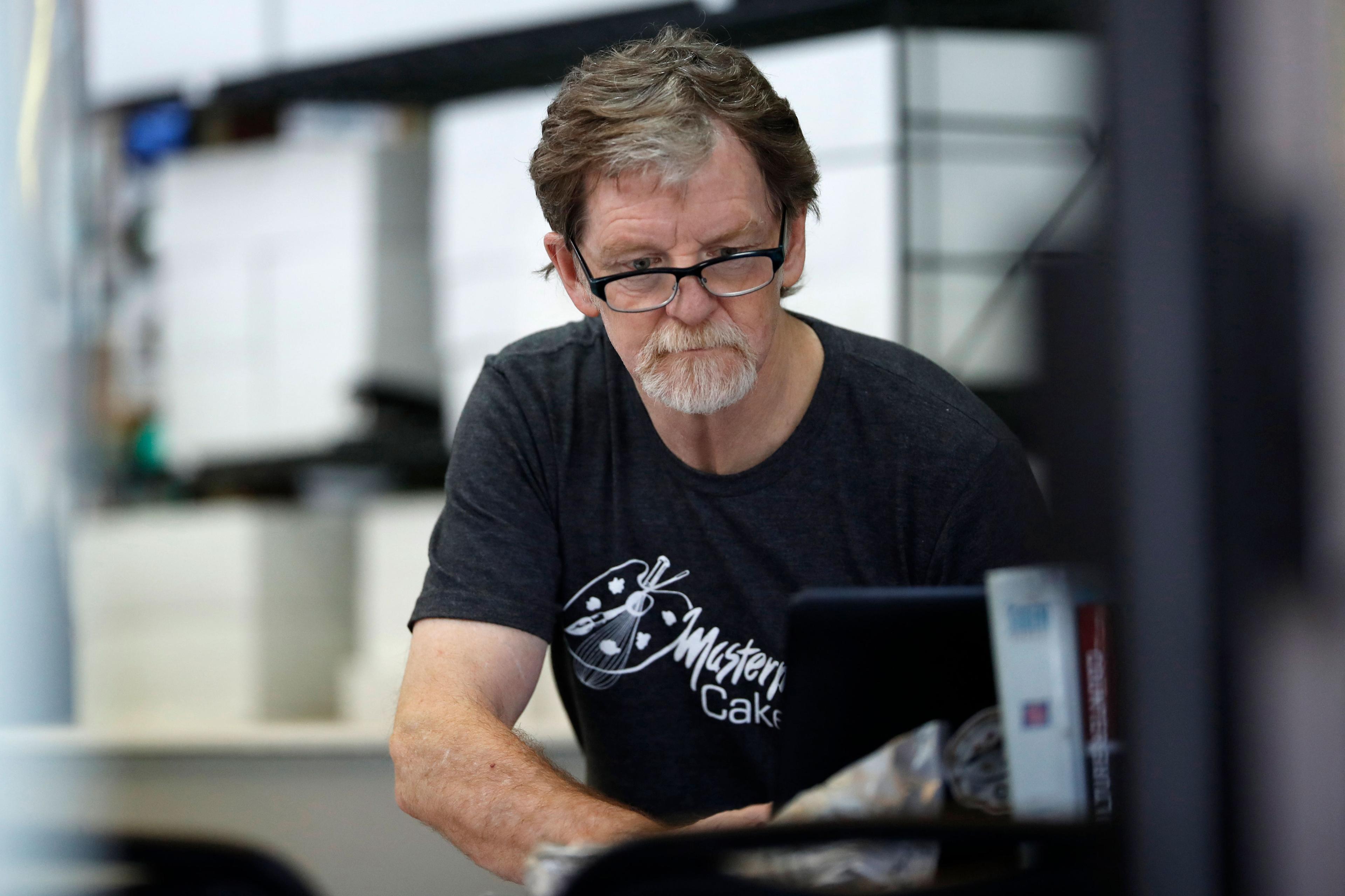

Lakewood baker Jack Phillips is again facing legal action for declining to bake a cake for an LGBTQ customer. There’s just one big difference this time: the state of Colorado isn’t involved.
Attorneys for Autumn Scardina, a transgender woman, filed a complaint against Phillips in state court Wednesday. In 2017, Scardina ordered a cake from Phillips to celebrate her birthday and gender transition. Phillips declined, citing his Christian beliefs and Scardina filed a complaint with Colorado’s Civil Rights Commission.
In March, Attorney General Phil Weiser dropped the case filed on Scardina’s behalf. In exchange, Phillip’s attorneys agreed to end their own discrimination complaint against the state.
The truce gave Phillips a brief reprieve. By reviving the case on their own, Scardina and her attorneys hope to force the courts to decide whether Phillip’s action amounted to discrimination under Colorado law — without worrying about whether the state itself wants to pursue the issue.
“We simply want the law to be enforced,” said attorney Paula Greisen, who is representing Scardina. “Because if not, you allow a business to send a message: go ahead, refuse service to these people, it’s OK, when the citizens of Colorado have said it’s not.”
Senior Counsel Jim Campbell for the Alliance Defending Freedom, the nonprofit Christian legal group who represents Phillips said in a comment:
"A new lawsuit has been filed against Masterpiece Cakeshop that appears to largely rehash old claims. The State of Colorado abandoned similar ones just a few months ago. So this latest attack by Autumn Scardina looks like yet another desperate attempt to harass cake artist Jack Phillips. And it stumbles over the one detail that matters most: Jack serves everyone; he just cannot express all messages through his custom cakes."
Regarding Scardina’s original request, Phillips told CPR last summer, “I know the Bible says that God created male and female and that we don’t get to choose that, and we don’t get to change that. And I don’t feel like the government has a right to compel me to participate in creating a cake that promotes that message.”
Phillips gained international attention when he chose not to bake a wedding cake for a gay couple in 2012. The Colorado Civil Rights Commission ruled the decision amounted to discrimination and pursued legal action. The case wound its way to the Supreme Court, which narrowly ruled in Phillip’s favor in 2018.
Still, many saw that decision as a punt more than a slam dunk for religious freedom. That’s because the Justices decided the Colorado Civil Rights Commission had shown a bias against Phillips. It didn’t resolve the larger issue of whether business owners are allowed to refuse to serve customers for religious reasons.
“By filing separately, we are taking the state out of the equation,” Greisen said. “I fully believe we will win in the state courts...and I don’t believe there is any First Amendment or religious implications that would allow them to discriminate.”
Besides accusing Phillips of discrimination, the lawsuit also claims he engaged in deceptive trade practices in refusing to serve Scardina.
The second claim is specific because after his first case, Phillips suggested he would make any kind of baked good for LGBTQ customers, so long as it wasn’t a wedding cake. The suit claims that amounts to a violation of Colorado Consumer Protect Act, since Scardina ordered a birthday cake.
Phillips said customers often ask him to bake cakes that violate his Christian religion, such as Halloween cakes and he always declines. Phillips has said he also declines to bake cakes that are disrespectful of LGTBQ people.
Read The Complaint









